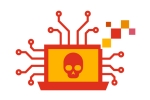Increased taxchecks on business use of electric vehicles
08/11/21
It is no surprise that many Austrian companies have chosen electric vehicles in the past year. In addition to the tax advantages, businesses were able to apply for a 14% investment bonus for the acquisition of an electric vehicle until 28 February 2021. However, one aspect that is frequently overlooked in this regard is that the input VAT for expenses in connection with electric vehicles is only deductible when the vehicle is used for business purposes. With the increasing number of electric vehicles, the interest of the Austrian tax authorities in evidence of business use is increasing.
Input VAT deduction for electric vehicles
In general, the prerequisite for input VAT deduction is that supplies of goods or services are made to a taxable person for business purposes.
In general, expenses in connection with the purchase, lease or operation of cars, estate cars, or motorcycles do not count as business expenses. However, vehicles with a CO2 emissions rate of zero grams per kilometre (i.e. electric vehicles) are explicitly excluded. The following rules apply for electric vehicles:
a) Writing down allowance for luxury vehicles
A significant aspect for electric vehicles is the writing down allowance for luxury vehicles (so-called “Luxustangente”) in the amount of EUR 40,000 (gross). If the expenses are predominantly non-deductible expenses, the right to deduct input tax is lost entirely. Acquisition costs in excess of EUR 40,000 constitute non-deductible expenses. Predominantly non-deductible expenses exist if the acquisition costs exceed EUR 80,000. For acquisition costs between EUR 40,000 and EUR 80,000, there is generally a right to full input tax deduction, but the acquisition is subject to deemed taxation in the amount of the non-appropriate portion, i.e. the appropriate portion remains subject to VAT deduction.
b) Minimum business use rate of 10%
To enable business use to be recognised, the vehicle needs to be used for business purposes at a rate of at least 10%.
Employees who frequently use a vehicle for business purposes (e.g. sales staff) simply need to credibly demonstrate 10% business use. However, employees who do not use a company car every day for business purposes (e.g. accounting staff) could encounter problems providing suitable evidence of business use (of at least 10%), as journeys between home and work are generally classified as non-business-related private journeys.
The best form of evidence for the business use of the vehicle is a proper and complete journey logbook. However, until now it is has not been common practice to keep a journey logbook for electric vehicles, as an in-kind benefit of zero applies for electric vehicles for wage tax purposes.
Recommendation
It is our experience that tax auditors are beginning to examine this issue and the growing number of electric vehicles suggests that this trend is likely to increase. We therefore recommend maintaining a journey logbook, especially in cases where there may be doubt about 10% business use.
Note: The degree of business use is not relevant for in-kind benefits in payroll accounting.
Authors: Peter Draxler & Christopher Malaschitz
We encourage feedback on the newsletter and the content. Equally, we welcome any of your thoughts on topics that you would like to see addressed in future issues.
Copyright and Publisher: PwC Österreich GmbH Wirtschaftsprüfungsgesellschaft, Donau-City-Straße 7, 1220 Vienna, Austria
Editor: Eva Ebner, eva.ebner@pwc.com
The above information is intended to provide general guidance only. It should not be used as a substitute for professional advice or as the basis for decisions or actions without prior consultation with your advisors. While every care has been taken in the preparation of the publication, no liability is accepted for any statement, option, error or omission.
PwC refers to the PwC network and/or one or more of its member firms, each of which is a separate legal entity. Please see www.pwc.com/structure for further details.
Kontakt





































